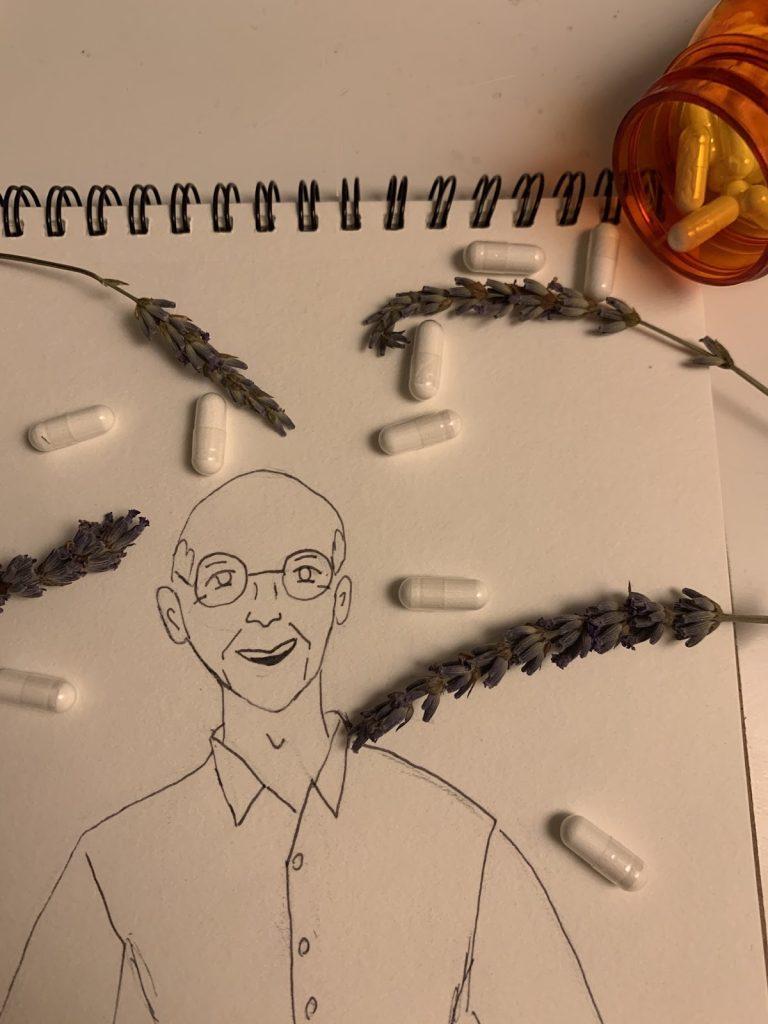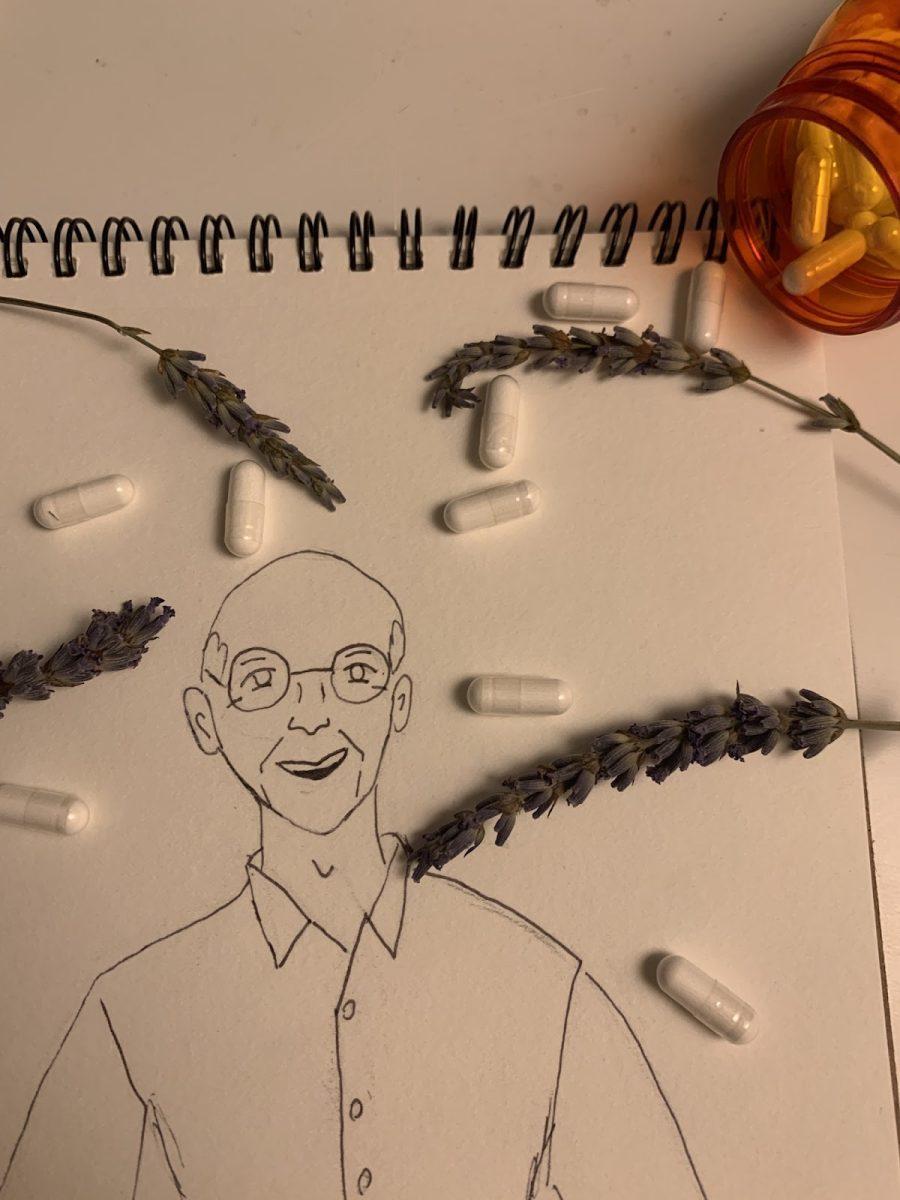In a press release on November 9, 2020, the Biden-Harris Transition Team announced the formation of its COVID-19 Advisory Board. One member of this board is Dr. Ezekiel Emanuel. In his 2014 Atlantic piece “Why I Hope to Die at 75,” and again in a 2019 interview with the Advisory Board, Emanuel takes the stance that life loses meaning after the age of about 75, not due to age, but due to disability and chronic illness. COVID-19 disproportionally impacts disabled and chronically ill people and leaves more people disabled and chronically ill in its wake. To have someone with such little regard for the lives of disabled people involved in national policy regarding coronavirus is terrifying.
In 2014, Dr. Emanuel wrote “Why I Hope to Die at 75” in The Atlantic. In this piece, he details why he wants to switch to entirely palliative care at 75, no longer aiming to prolong his life. There is no problem with him wanting to have his wishes respected as he ages, but this article offers valuable insight into the way Emanuel views disabilities and disabled people. Emanuel emphasizes the lives of disabled people as burdensome and deprived, remarking that he himself would prefer to die than live on as a disabled person. While not always explicitly using the word “disabled,” Emanuel hides his ableism by choosing to indirectly refer to disability under the guise of age, using words that are less likely to set eugenics alarm bells ringing in readers’ heads.
From the fourth paragraph of his 2014 piece, Emanuel is clear about the reason he thinks old age ought to be avoided: disability. Emanuel asserts that while dying is a loss, so is old age, because it “renders many of us, if not disabled, then faltering and declining, a state that may not be worse than death but is nonetheless deprived.” This section helps to interpret Emanuel’s work through a lens of ableism and eugenics, because when Emanuel talks about old age, what he really means is disability. Under the CDC’s definition, any condition, physical or mental, that restricts someone’s participation in society or activities counts as a disability. Emanuel’s version of old age fits neatly under this umbrella.
Throughout the piece, Emanuel describes disabled people as burdensome. He paints disabled people as unable to meaningfully contribute to society and as a hardship to those who help care for them. After describing the disabilities and chronic illnesses that often accompany old age, Emanuel poses a rhetorical question to the audience: “Does that sound very desirable? Not to me.” Later in the piece, when covering the topic of leaving a legacy, Emanuel outright says that the legacy of diabled people is to be “experienced as burdens.” While Emanuel isn’t wrong that disabled, chronically ill, and older people oftentimes do have seemingly smaller contributions, it’s okay for people to contribute differently, in both amount and type. Disabled (and by extent, elderly) people may very well have to spend more time resting and focusing on their health than their abled peers, and that shouldn’t be something that minimizes their personhood or inherent value.
One of the most disturbing messages of all in Emanuel’s Atlantic piece is his assertion that disabled people are unable to accurately gauge their own quality of life. Buried in a sad anecdote about the dwindling life of the so-called “American immortal” is Emanuel’s belief that aging people (and by extent disabled people) “don’t notice that [they] are aspiring to and doing less and less. And so [they] remain content, but the canvas is now tiny.” This idea that those with progressive disabilities are incapable of accurately perceiving their quality of life is incredibly dangerous when held by someone influencing national policy. If disabled people are not the ones who get to gauge their own quality of life, then who is?
That article was written in 2014, so it’s reasonable to entertain the idea that perhaps Dr. Emanuel’s views have changed in the six years since his Atlantic piece was published. Handily enough, Dr. Emanuel was interviewed for a piece on Advisory Board, a site aimed at leaders in the healthcare field, in summer 2019. In this piece, he maintains that his position has stayed the same since he wrote his article in the Atlantic and underscores his beliefs on the nature of life past 75, by which he means life as a disabled person. He contends that the types of activities that these people are able to pursue are simply “play… not meaningful work.” After listing off what would be considered avocational activities for abled people, Emanuel is transparent about his belief that a life primarily consisting of those activities is “not probably a meaningful life.” His insistence that life as a disabled person is not only burdensome to those around them, but largely meaningless, is alarming.
To many people, Emanuel’s argument that the lives of disabled people are limited in happiness or value might seem reasonable. After all, how could someone live a happy and meaningful life when they can’t do all of the things that make able-bodied and minded people feel the same way? The answer to this question is held only by each disabled and/or chronically ill person.
I am chronically ill. My diet and activities are restricted. I throw up all of the food in my stomach when I get very anxious or excited, when I eat a trigger food, or sometimes for no apparent reason. I have a heart defect that will very likely require medical intervention at some point in my life. While it’s certainly unpleasant at times, and intermittently interferes with my daily life, I have never felt like it made my life less fulfilling. My life is certainly impacted by being sick, but I do things that I find meaningful, and that should be enough. Nobody loves life all of the time, but I’d like to think I’m in love with being alive enough to make it worth it. Mine is not the only experience of chronic illness or disability, but it’s the one I can speak to in its entirety.
Some people may believe in a version of a meaning of life that is externally defined. There is no universal standard for what constitutes a meaningful or valuable life. Factors such as culture, religion, spirituality, and personal philosophy all contribute to what each individual defines as a meaningful life. In the end, a life is for the person who is living it. Each person can feel their own happiness and their own pain. Living for others helps us to hold on, but the end goal for healing is to live for ourselves.
I respect Dr. Emanuel’s plan for his end-of-life care. He is entitled to his own decisions regarding his medical care, and his own ability to gauge his quality of life. I only hope that he extends the same courtesy to disabled and chronically ill people across our country. According to an article in Forbes from this September, people with underlying medical conditions are 1.5-4.5 times as likely to be hospitalized with COVID-19 compared to those without. These effects are only compounded for those who are Black, Indigenous, and other people of color. Disabled and chronically ill people are being hit harder by this pandemic than their healthy and non-disabled counterparts. Now is the time to emphasize the value of the lives of disabled and chronically ill people more than ever. It’s true that my life has had to adapt for my illness. It’s a possibility that I am lying to myself about how meaningful my life could ever truly be. If it is a lie though, it’s one I’ll gladly keep living.



































